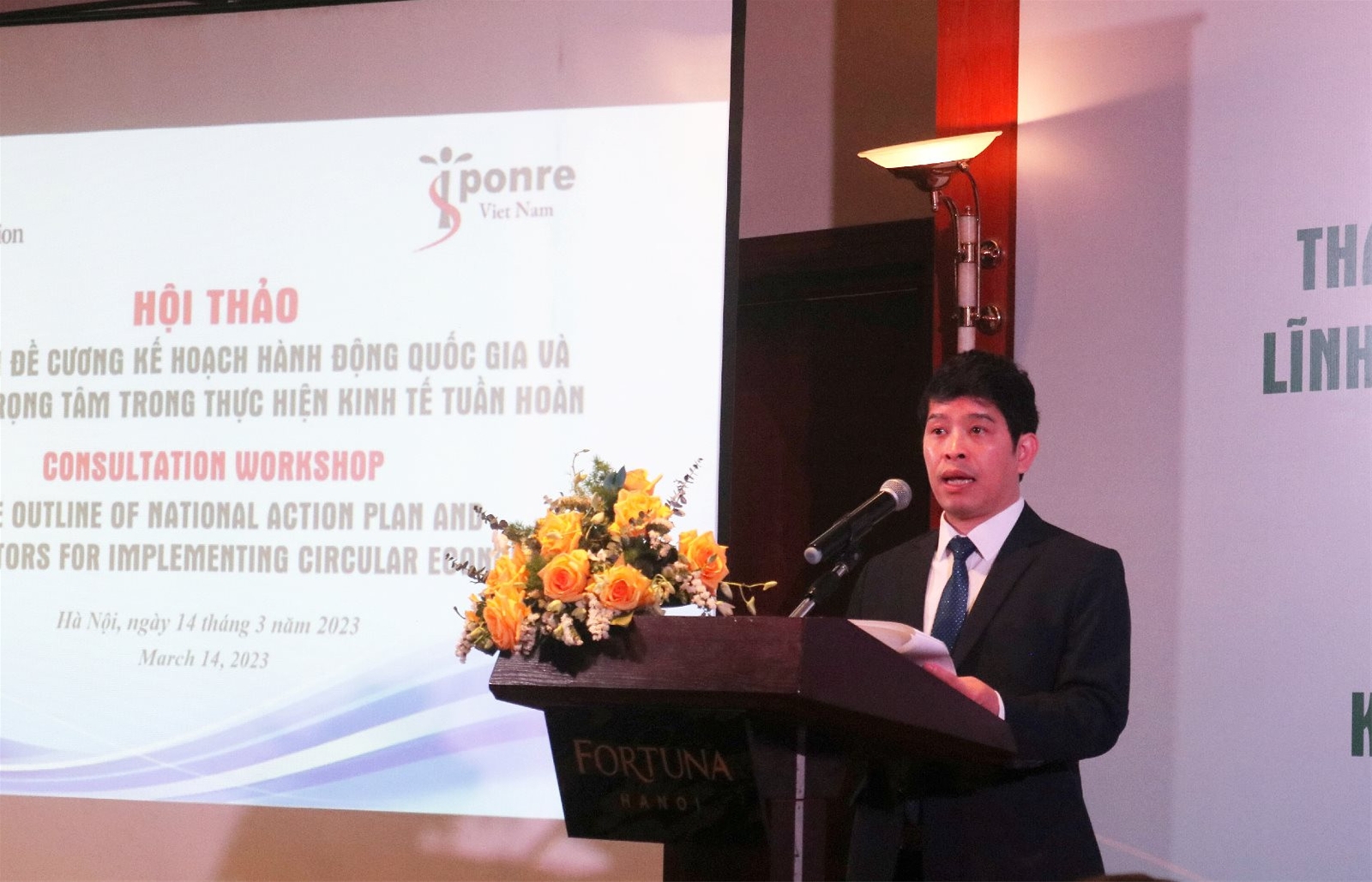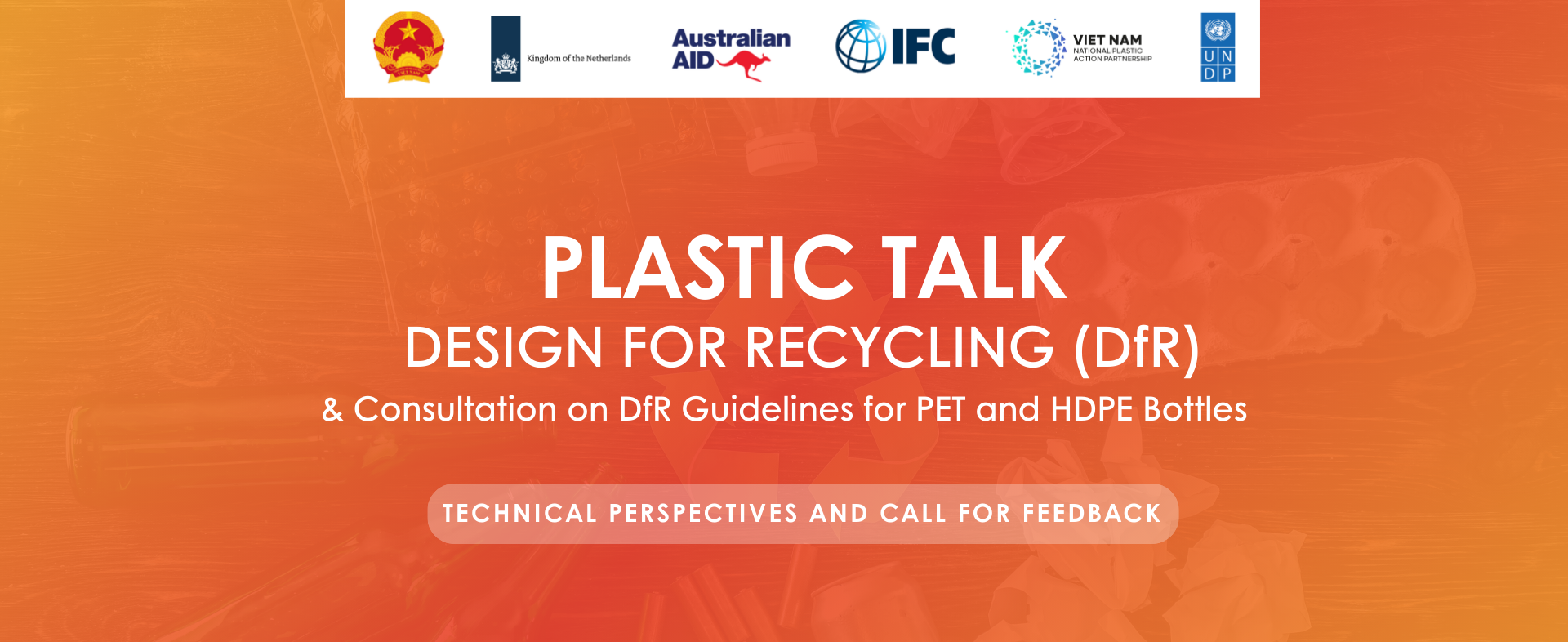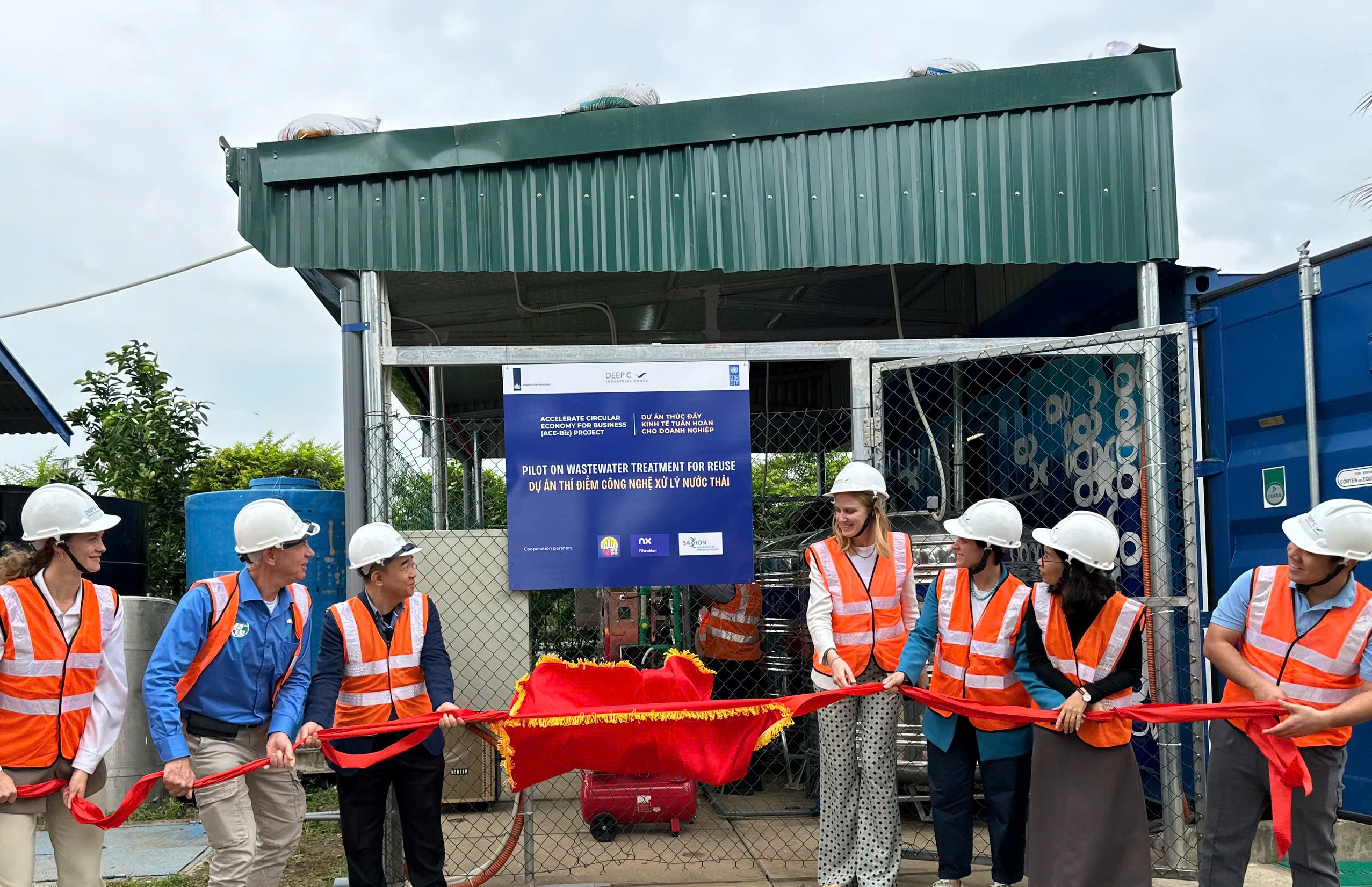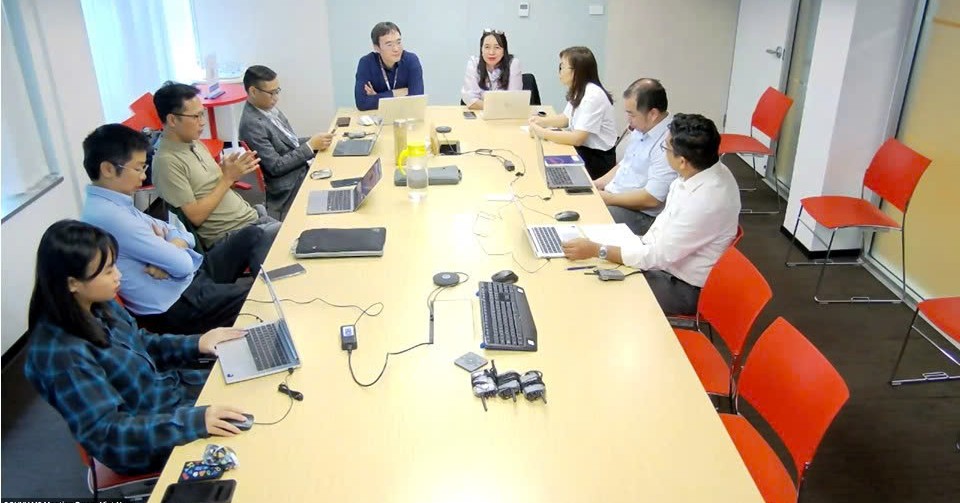On March 14, in Hanoi, the Institute of Strategy and Policy (ISPONRE) on natural resources and environment in collaboration with the Hanns Seidel Foundation (HSF) Viet Nam held a workshop to discuss the outline of the national action plan and key areas on the implementation of circular economy (CE).

Assoc. Prof. Dr. Nguyen Dinh Tho – Director General of ISPONRE, speaking at the Workshop
Speaking at the opening of the seminar, Assoc. Prof. Dr. Nguyen Dinh Tho – Director General of ISPONRE said: In Viet Nam, the revised Law on Environmental Protection 2020 has introduced regulations on the circular economy; Decree No. 08/2022/ND-CP also provides detailed guidance on criteria, application methods, assignment of responsibilities and mechanism to encourage the application of circular economy.
The early recognition and institutionalization of the concept and regulations of the circular economy into Viet Nam’s legal and policy framework has received strong support from the international community, the consensus among scientists, and there have been signals of support and response by specific actions of the business community to this potential economic model.
According to Article 139 of Decree No. 08/2022/ND-CP, the Ministry of Natural Resources and Environment is assigned to be responsible for formulating and submitting to the Prime Minister for the promulgation of the National Action Plan for the implementation of the ECO before December 31, 2023. Carrying out the tasks assigned by MONRE, over the past time, ISPONRE has developed a draft outline of the National Action Plan to implement CE.

Mr. Michael Siegner – Chief Representative of HSF in Viet Nam shared at the Workshop
According to Mr. Michael Siegner – Chief Representative of the HSF Foundation in Viet Nam, CE is a strong trend in many countries worldwide and an effective solution to global challenges such as climate change, biodiversity loss, and waste pollution. In the coming time, the HSF Foundation will continue to support and accompany ISPONRE to realize CE and promote sustainable development measures.
Sharing the draft outline of the National Action Plan for CE implementation in Viet Nam, Dr. Lai Van Manh – representative of ISPONRE said: The plan was built with the goal of making the most of the value of used resources and materials; minimizing waste, and emissions into the environment. Develop good habits, proceed to create a culture in CE application; form a circular society, apply production and consumption models, and circular business models become popular in society.
At the same time, fully exploit the potential of innovation and creativity to apply CE right from the design and implementation stages of more sustainable and efficient production systems. Choosing to apply the common and suitable CE model to the characteristics of each region, domain, industry, and field, promoting sustainable development. Promote the regeneration of nature, a positive and sustainable impact on human life and the environment.
To accomplish the above objectives, the draft plan outlines tasks and prioritized solutions for implementation, including Propaganda, education, training, training, and dissemination of CE knowledge. Promote eco-design, design to implement CE for key products, business, and service establishments. Pilot and replicate key CE models.
In addition, perfecting institutions, policies, and laws. Forming and developing markets for CE-related goods and services. Promoting innovation, creativity, digital transformation, science and technology development, providing information and data, and developing CE Network in Viet Nam. Mobilize human resources, finance, and develop technical infrastructure. Strengthening regional, industry, and field linkages in CE implementation; promoting international cooperation in CE implementation.

The workshop
According to the draft, a number of key industries, fields, and projects for CE implementation include Mining; agriculture, forestry, and fishery; Transportation; energy; processing and manufacturing; build; water treatment and supply; repair, refurbishment, restoration, consulting, evaluation services; tourism and commerce; Information Communication; waste management (prioritize conversion into resources, energy).
At the Workshop, the delegates exchanged and discussed the contents related to the outline of the national action plan and the key areas in CE implementation in Viet Nam and the appropriate CE criteria for Vietnam. Most of the comments said that it is necessary to narrow the list of industries and focus areas in accordance with reality, to analyze products, and to consider products according to EPR regulations to identify industries. The evaluation criteria should be considered to be suitable for statistical activities associated with industries and fields. It is necessary to supplement the CE training program and have solutions to support the development of the supply and demand market.
At the end of the seminar, ISPONRE Deputy Director Mai Thanh Dung said that the comments on the key areas will be an important scientific basis to supplement the research process and propose necessary activities to implement the selected field in the future. CE norms will support the process of guiding the implementation and evaluation of the process of applying CE in practice. The Institute will absorb, edit and complete the outline to develop and complete the action plan to implement CE, and promptly submit it to the Prime Minister in accordance with the proposed roadmap.
















